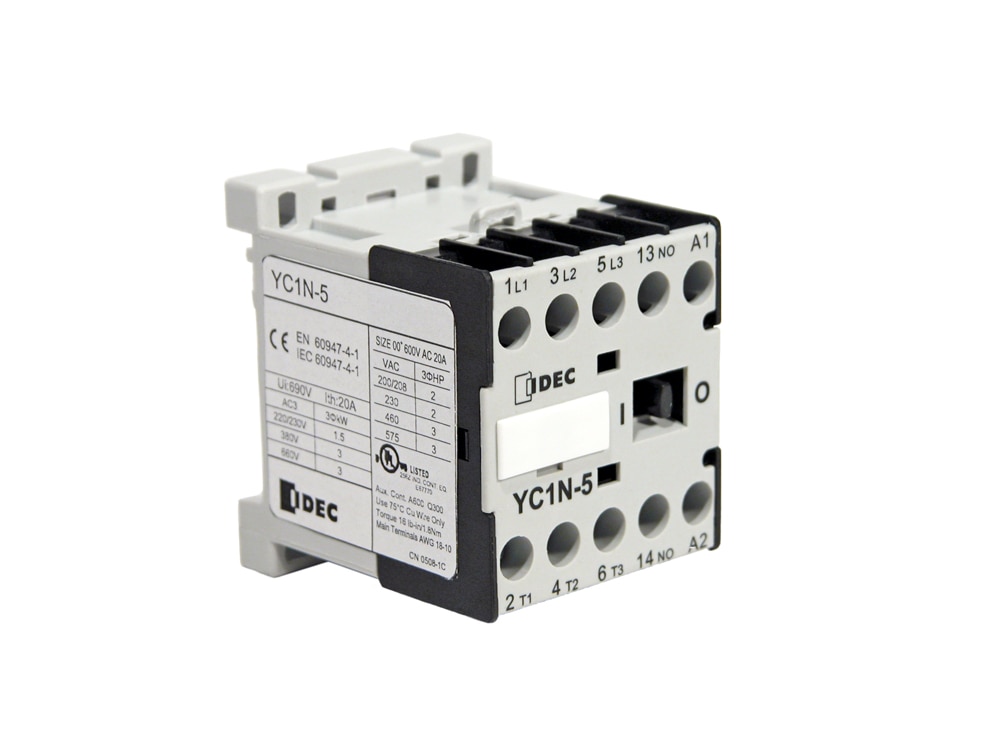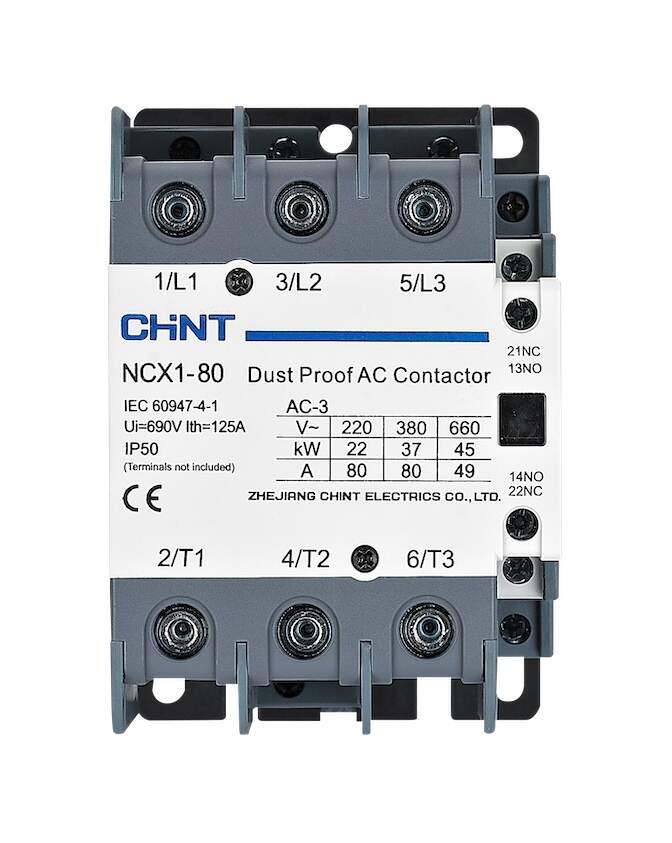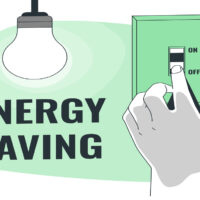A contactor is an electrical device used to switch an electrical circuit on or off. It controls large electrical loads.
Contactors play a crucial role in various electrical systems. They are widely used in industrial applications to manage heavy machinery and equipment. These devices ensure safe and efficient control of electrical power, preventing overloads and electrical failures. Contactors come in different sizes and capacities, suitable for various needs.
They are essential components in motor control systems, lighting circuits, and heating applications. Understanding their function and importance helps in maintaining reliable and safe electrical operations. Choosing the right contactor for your specific application ensures optimal performance and longevity of your electrical systems.
Introduction To Contactors
Contactors are essential components in electrical systems. They control the flow of electricity in circuits. Understanding contactors helps maintain safe and efficient electrical operations.
What Is A Contactor?
A contactor is an electrically controlled switch. It switches electrical power circuits. Contactors are used to control electric motors and lighting systems.
Contactors can handle high current loads. They come with a coil that gets energized or de-energized. When the coil is energized, the contactor closes, allowing electricity to flow. When the coil is de-energized, the contactor opens, stopping the flow of electricity.
Here is a table showing the main parts of a contactor:
| Part | Description |
|---|---|
| Coil | Electromagnetic component that activates the switch. |
| Contacts | Conductive parts that open or close the circuit. |
| Frame | Houses and supports the coil and contacts. |
Importance In Electrical Systems
Contactors play a vital role in electrical systems. They ensure the safe operation of high-current devices. Here are a few reasons why contactors are important:
- Safety: Prevents electrical overloads and fires.
- Efficiency: Manages power distribution effectively.
- Control: Allows remote control of electrical devices.
Contactors are used in various applications:
- Industrial machinery
- Heating and cooling systems
- Lighting control systems
Using contactors ensures that electrical systems run smoothly. They help protect both the equipment and the users.

Credit: www.eaton.com
Types Of Contactors
Contactors are essential devices in electrical circuits. They control the flow of electricity. Various types of contactors are available. Each type has unique features and applications. This section explores the different types of contactors.
Electromagnetic Contactors
Electromagnetic contactors are widely used. They operate using an electromagnetic coil. When the coil is energized, the contacts close. This allows the current to flow through the circuit.
- Coil Voltage: They come in various coil voltage ratings.
- Applications: Used in motor starters and lighting circuits.
- Advantages: Reliable and easy to maintain.
Solid-state Contactors
Solid-state contactors do not have moving parts. They use semiconductor devices to control current flow. These contactors are known for their durability.
- No Mechanical Wear: Last longer than electromagnetic types.
- Silent Operation: They operate quietly.
- Applications: Ideal for environments with high switching frequencies.
Hybrid Contactors
Hybrid contactors combine features of electromagnetic and solid-state contactors. They offer the best of both worlds. These contactors use solid-state components for switching. They also have electromagnetic contacts for current flow.
- Durability: Reduced wear and longer lifespan.
- Flexibility: Suitable for various applications.
- Efficient Switching: Offer efficient and reliable operation.
Key Features And Specifications
Understanding the key features and specifications of a contactor is essential. This ensures you choose the right one for your needs. Below, we will explore the most important aspects.
Current Rating
The current rating of a contactor indicates the maximum current it can handle. This is crucial for safety and performance. Here’s a table summarizing common current ratings:
| Contactor Type | Current Rating (Amps) |
|---|---|
| Mini Contactors | Up to 9A |
| Standard Contactors | 9A to 100A |
| Heavy-Duty Contactors | Over 100A |
Voltage Rating
The voltage rating specifies the maximum voltage a contactor can handle. This helps in ensuring the contactor operates effectively. Here are some common voltage ratings:
- Low Voltage: Up to 600V
- Medium Voltage: 600V to 1000V
- High Voltage: Above 1000V
Operating Temperature
The operating temperature range is vital for reliability. It shows the temperatures a contactor can safely work within. Here are typical operating temperature ranges:
- Standard Range: -25°C to 50°C
- Extended Range: -40°C to 70°C
- Extreme Range: -55°C to 85°C
Choosing the right contactor ensures safety and efficiency in your electrical systems.

Credit: us.idec.com
Advantages Of Using Contactors
Contactors are essential devices in electrical systems. They help control power flow. Using contactors provides multiple benefits. These benefits enhance efficiency, safety, and system reliability.
Enhanced Efficiency
Contactors improve efficiency in electrical systems. They manage high-voltage loads with ease. This reduces energy waste and increases system performance.
Contactors can automate processes. This saves time and reduces manual work. Automation leads to faster operations and better resource utilization.
Increased Safety
Contactors enhance safety in electrical systems. They prevent electrical overloads and short circuits. This reduces the risk of fire and equipment damage.
They also offer isolation features. This allows safe maintenance and repairs. Safety features protect both equipment and personnel.
Improved System Reliability
Contactors improve system reliability. They provide consistent performance over time. This leads to fewer interruptions and downtimes.
They are durable and long-lasting. This reduces the need for frequent replacements. Reliability ensures smooth and continuous operations.
Applications In Various Industries
Contactors play a key role in many industries. They control electrical circuits and manage power. Below, we explore their uses in different sectors.
Manufacturing
In manufacturing, contactors are vital. They handle large machines and tools. Factories use them for starting and stopping motors. They also protect machines from overloads. This ensures smooth operations.
Contactors automate production lines. They can control conveyor belts and robotic arms. This boosts efficiency and reduces human error.
| Machine | Function |
|---|---|
| Conveyor Belts | Transport materials |
| Robotic Arms | Automate tasks |
| Motor Starters | Control heavy machinery |
Automotive
The automotive industry uses contactors widely. They are essential for vehicle manufacturing. They control assembly line machines. This includes welding robots and painting stations.
Contactors also manage electric vehicle (EV) charging stations. They ensure safe and efficient power distribution. This is crucial for EV infrastructure.
- Welding robots
- Painting stations
- EV charging stations
Hvac Systems
HVAC systems rely heavily on contactors. They control heating, ventilation, and air conditioning units. This ensures a comfortable indoor climate.
Contactors manage compressors, fans, and pumps. They help in starting and stopping these components. This optimizes energy use and reduces costs.
- Compressors
- Fans
- Pumps
Contactors also enhance system safety. They prevent electrical overloads and short circuits. This extends the life of HVAC systems.

Credit: www.batterydesign.net
Installation And Maintenance Tips
Installing and maintaining a contactor is crucial for its optimal performance. Follow these tips to ensure your contactor works efficiently.
Proper Installation Practices
Proper installation is the key to a long-lasting contactor. Here are some best practices:
- Read the manual: Always follow the manufacturer’s instructions.
- Secure mounting: Ensure the contactor is firmly mounted.
- Check wiring: Double-check all wiring connections.
- Use correct tools: Always use the recommended tools.
Routine Maintenance
Routine maintenance helps in keeping the contactor in good condition. Follow these steps:
- Inspect regularly: Look for signs of wear and tear.
- Clean contacts: Ensure the contacts are free from dirt.
- Check coils: Ensure the coils are not damaged.
- Tighten connections: Make sure all connections are tight.
Troubleshooting Common Issues
Sometimes contactors face issues. Here are some common problems and their solutions:
| Issue | Possible Cause | Solution |
|---|---|---|
| Contactor not closing | Coil failure | Replace the coil |
| Excessive noise | Loose parts | Tighten all parts |
| Contacts wear out quickly | Dirt accumulation | Clean the contacts |
Comparing Contactors And Relays
Contactors and relays are both essential components in electrical circuits. They control the flow of electricity. While they share some similarities, they serve different functions and are used in different scenarios. Understanding their differences can help you choose the right component for your needs.
Functional Differences
Contactors are designed to handle high voltage and current loads. They are mainly used in industrial applications. Contactors can switch on and off electrical power circuits.
Relays, on the other hand, are typically used for low voltage applications. They are often found in control circuits. Relays can switch smaller electrical loads and signals.
| Feature | Contactors | Relays |
|---|---|---|
| Voltage | High | Low |
| Current | High | Low |
| Applications | Industrial | Control circuits |
Use Case Scenarios
Contactors are ideal for heavy machinery and large motors. They are used in HVAC systems, manufacturing plants, and power distribution panels.
- HVAC systems
- Manufacturing plants
- Power distribution panels
Relays are perfect for smaller devices and electronic circuits. They are often used in home automation, automotive systems, and communication devices.
- Home automation
- Automotive systems
- Communication devices
Future Trends In Contactor Technology
The world of contactor technology is evolving rapidly. Emerging trends are changing the way we think about and use contactors. The focus is on smart technology and energy efficiency. These trends aim to improve performance, reduce costs, and enhance sustainability.
Smart Contactors
Smart contactors are the future of electrical systems. They come with advanced features and offer real-time monitoring. These contactors can detect faults and send alerts. This helps in quick troubleshooting and reduces downtime.
Smart contactors also have the ability to connect with other smart devices. This allows for seamless integration into smart grids and IoT ecosystems. With the rise of Industry 4.0, these contactors are becoming essential.
Here are some key features of smart contactors:
- Remote Monitoring: Track performance from anywhere.
- Fault Detection: Identify issues before they escalate.
- Data Analytics: Gain insights for better decision-making.
- Integration: Connect with other smart devices.
Energy Efficiency Innovations
Energy efficiency is a critical focus in contactor technology. New innovations aim to reduce energy consumption and operational costs. These innovations also help in meeting regulatory standards for energy use.
One such innovation is the use of advanced materials. These materials improve the efficiency and lifespan of contactors. Another innovation is the development of low-power contactors. These contactors consume less energy without compromising performance.
The following table highlights some energy efficiency innovations:
| Innovation | Benefit |
|---|---|
| Advanced Materials | Longer lifespan and better performance |
| Low-Power Contactors | Reduced energy consumption |
| Optimized Coil Design | Greater efficiency and lower heat generation |
Energy-efficient contactors are not just good for the environment. They also offer significant cost savings over time. Investing in these technologies can lead to long-term benefits.
Frequently Asked Questions
What Is A Contactor?
A contactor is an electrical device used to switch circuits on and off. It operates by using an electromagnet.
How Does A Contactor Work?
A contactor works by applying voltage to its coil, creating a magnetic field. This field pulls in the contacts to complete the circuit.
What Are The Types Of Contactors?
There are three main types of contactors: magnetic, manual, and mechanical. Each type serves specific applications.
Where Are Contactors Commonly Used?
Contactors are commonly used in industrial applications. They control electric motors, lighting, heating, and capacitor banks.
Conclusion
Selecting the right contactor ensures efficient and safe electrical operations. Always prioritize quality and compatibility with your system. Proper maintenance extends the lifespan of your contactor. Stay informed and make educated choices for lasting performance. Keep your electrical systems running smoothly with the best contactors available.




